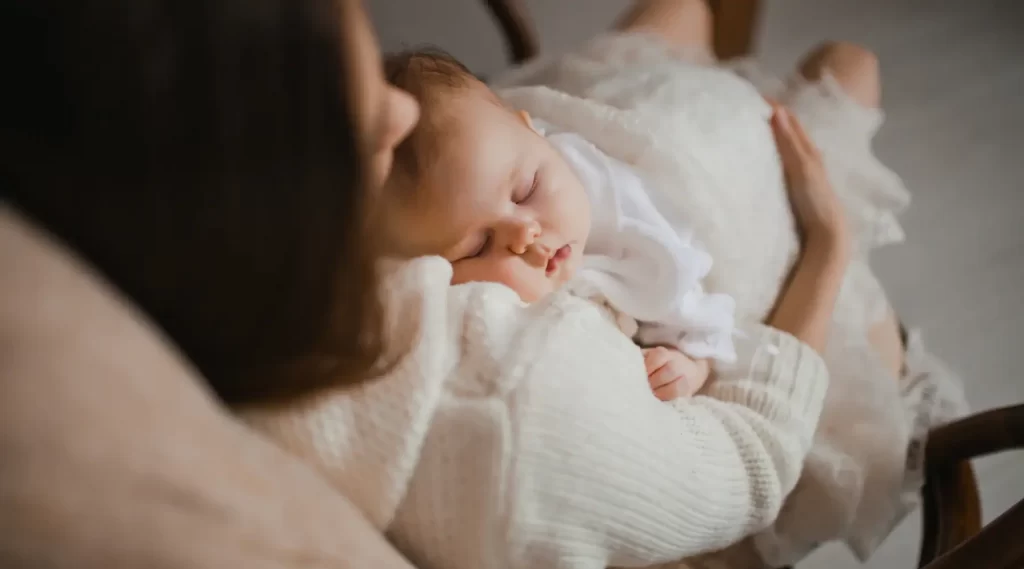What is the Wonder Weeks?
Many parents will have heard of the publication, The Wonder Weeks. This English version of a Dutch book released in 1992 draws on data dating back to Jane Goodal’s experience observing chimpanzees in the 1970s.
It was written by a psychologist and ethologist (someone who studies animal behaviours) and describes 10 predictable developmental ‘leaps’ that coincide with unsettled behaviour and sleep regression.
This provides solace to parents who are trying to understand why their child is unsettled and gives license to ‘ride it out’ until the leap is finished.
Sounds lovely. Unfortunately, it’s completely false!
Child development is a fluid process
It occurs on a continuum at different times and at different velocities for every child. There are countless variables and influences that alter the rate of child development, so to force this complex, astonishing process into ten conveniently discreet packages is simply misleading.
You would never state that a baby learns to sit independently the day they turn 6 months of age. This can occur at 5 months, or just as easily at 8 months. And this is an easily demonstrable gross motor development!
So how can you predict complex neurological breakthroughs, in a newborn, down to the day?
Don’t dismiss unsettled behaviour as a “LEAP”
Moreover, I find it potentially dangerous.
I would never want a parent to dismiss unsettled behaviour as ‘just another leap, because my app said so’ while potentially missing a treatable cause for poor feeding or reduced sleep. This is my biggest gripe.
While there is a positive about the program; that is the way it encourages parents to interact with their babies and further drive their development.
However – simply playing with your child will achieve the exact same thing, without erroneous parental pressure to make someone feel guilty if they don’t adequately drive development!
Development happens organically through play, through interaction and with normal love and affection.
Academic Controversy in the Wonder Weeks Findings:
If you dig deeper into the original academic and the published findings you’ll realise he and the paper have been rejected by the world of academia. The original authors of the Wonder Weekswere Dutch physical anthropologist Hetty van de Rijt and ethologist and developmental psychologist Frans Plooij who studied 15 babies to produce the “leap” thesis.
No further research has been able to replicate the findings
Frans Plooij’s Ph.D. student, Carolina De Weerth, attempted to replicate his findings with 66 babies, she was unable to find evidence of the leaps her finding – “Results fail to support the 10-period pattern”.
Plooij was vocal in criticizing his student’s study,titled “Emotional instability as an indicator of strictly timed infantile developmental transitions,” and unethically fought to keep it from being published.
The paper was eventually published in 2011 and the controversy ultimately led Plooij to lose his place in academia.
Subsequently, no further research papers have been able to replicate Plooij’s findings of consistent, identifiable leaps in the newborn period.
Delete this app
Doctors orders: DELETE THIS APP and start looking for the true cause of your child’s unsettled behaviour.


